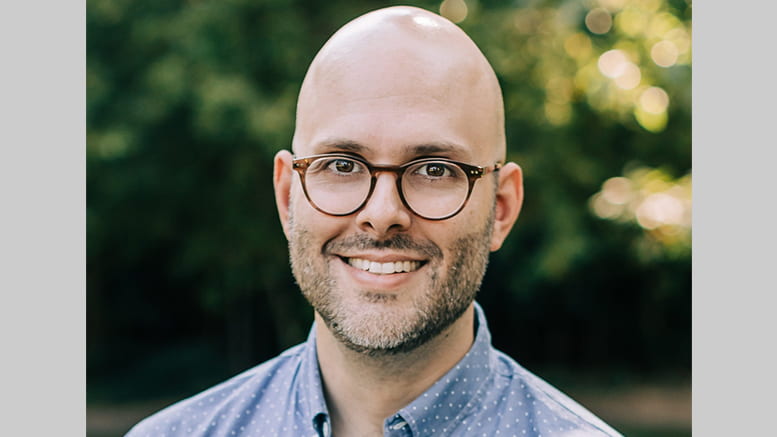Meet Assistant Professor Peter van Elswyk of the Department of Philosophy
November 2, 2022

Weinberg College welcomes Assistant Professor Peter van Elswyk to the Department of Philosophy! Professor van Elswyk recently answered a few questions about his current research and what inspired him to study philosophy.
Where are you from? Where did you study?
I grew up in Puyallup, Washington, a city with a daily view of Mt. Rainer that is missed now that I live in the Midwest. I completed my bachelor’s at Biola University, my master’s at Northern Illinois University, and my PhD at Rutgers University, New Brunswick. All of these degrees were in philosophy.
What inspired you to pursue your area of study?
I was introduced to philosophy when I participated in debate in high school. Ever since, I have been hooked. I prize the freedom I find in philosophy to explore foundational questions without being encumbered by disciplinary boundaries. Consequently, my work is very interdisciplinary. As I see it, philosophers have much to learn from cognate fields, and much to contribute to the project of integrating what can be learned into a cohesive picture of the world and our place in it.
Please describe your research.
My primary areas of expertise are philosophy of language and philosophy of mind. Broadly, my research aims to understand how conversation works by integrating the critical and historical perspective of philosophy with contemporary developments from cognitive science (especially psychology, linguistics, sociology). I’ve recently written about the difference between lying and misleading, the meanings of words used to indicate sources of evidence (including in non-English languages like Cuzco Quechua), and the underlying structure had by multi-clausal discourses.
What are you working on right now that excites you the most?
I am slowly working towards a monograph on hedging, i.e., the way speakers weaken how confidently they share information. For an example, compare “The Bulls lost to the Bucks” with “The Bulls lost to the Bucks, I think.” The “think”-parenthetical attached to the end of the second sentence weakens how forcefully the information about the Bulls losing is shared. This monograph will cover a lot of ground. It will have a section on the linguistics of hedging, how hedging influences what speakers are responsible for, how hedging impacts what hearers are justified in believing in response to shared information, and more.
How do you enjoy spending your free time?
I spend most of my free time with my family: my wife, my son, and Dobby, my Pembroke Welsh Corgi. We enjoy being outdoors when the weather allows, and playing board games when the weather does not. Wingspan is a recent favorite. An embarrassing amount of time is also spent watching and reading about professional basketball.
What is most fulfilling to you about teaching?
The mutual learning. I love orienting students to a philosophical topic for the first time, and then working through their fresh questions and objections. I have not been teaching at Northwestern very long, but I have already been struck by how probative, thoughtful, and careful the student’s in-class contributions are.
Why did you decide to come to Northwestern?
I could not pass the up the opportunity to join a philosophy department brimming with minds I admire, and to be a part of an institution that values interdisciplinary cross-pollination as much as I do. It was an easy decision.
Science & Technology

Northwestern accelerates quantum research with NVIDIA technology
September 19, 2025
NVIDIA code could help researchers tackle computationally demanding tasks hindering quantum research Northwestern University physicists are using NVIDIA technology to tackle the computationally demanding tasks hindering quantum research. Northwestern theoretical physicist Jens Koch and his research group…

CRISPR’s efficiency triples with DNA-wrapped nanoparticles
September 18, 2025
New system delivers CRISPR machinery more safely and effectively into cells With the power to rewrite the genetic code underlying countless diseases, CRISPR holds immense promise to revolutionize medicine. But until scientists can deliver its…

Passion for the planet: A new generation of environmental stewards starts here
May 29, 2025
Over the last two decades, the Weinberg College-housed Program in Environmental Policy and Culture (EPC) at Northwestern has embraced the humanities and social sciences and cultivated a new generation of environmental stewards. Growing up in…

Northwestern receives $25 million gift to advance adolescent mental health research
May 16, 2025
New institute will study psychology of emerging adults, leading to innovative wellness programming for students at the University and beyond Northwestern University is launching the Institute for Adolescent Mental Health and Well-Being, an interdisciplinary initiative…



